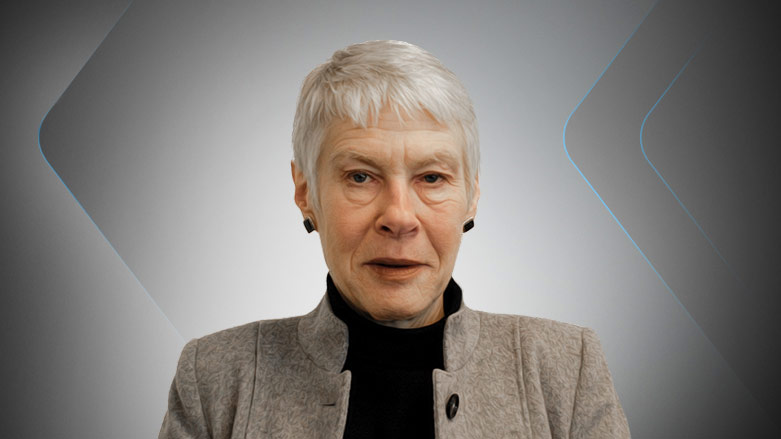Marine Corps Commandant: Terrorist leaders “use Islam” to mobilize support
.jpg)
WASHINGTON DC (Kurdistan 24) – Gen. Robert Neller, Commandant of the Marine Corps, addressed the question of the nature of the enemy that the US has been fighting in its long war—the seventeen years since the 9/11 attacks—in a Pentagon press briefing Wednesday.
Typically, Americans see that enemy in terms of one Islamic figure, like Osama bin Ladin, and his crazed followers. It is a satisfying picture in that it gives people an individual to hate and despise. It is also a simple view, easily comprehended.
It is represented by such phrases as “the Global Jihad” or “Radical Islam.”
Yet there is another, more ominous view, held by a few experts, prepared to challenge the conventional wisdom: namely, that the enemy is a complex mix which involves religious extremists, but others, too, including intelligence agencies and members of intelligence agencies from regimes that have been overthrown.
Those entities see advantage in covertly supporting extremists. It hides their hand, while they use the religion to recruit others, “useful idiots,” as Vladimir Lenin described them.
That second view is represented, most authoritatively, by an article in the German news magazine, Der Spiegel, entitled, “The Terror Strategist: Secret Files Reveal the Structure of Islamic State.”
The report, a leak from German intelligence, explains that the Islamic State (IS) was founded by a colonel in Saddam Hussein’s intelligence apparatus and that the core of IS is, in fact, former Iraqi intelligence officials.
Gen. Neller served as Deputy Commanding General, I Marine Expeditionary Force (Forward), during Operation Iraqi Freedom (OIF), and Kurdistan 24 asked him whether he agreed with the view as presented in Der Spiegel.
“I left Iraq in 2007,” Neller responded. “Clearly, the ISIS-Al-Qaida Iraq that we fought there did include former Saddam personnel.”
Neller continued, explaining that the enemy was “not a single thing,” as he affirmed, “You have to look at it country by country.”
You have to understand “what’s going on in the Philippines, what’s going on in Afghanistan,” he said.
“Whoever these people are, whether they’re criminals” or believers, “they use Islam” as a tool for mobilizing others, Neller explained.
That contrasts with the answer from the Marine Corps commander in al-Anbar province, when he was asked the same question two months ago.
“I’ve never looked at it from that perspective,” Col. Seth Folsom replied. But “I don’t believe that the leaders [of IS] are “former Iraqi regime leaders.”
“Know the enemy” is a famous tenet of Sun Tzu’s The Art of War—the world’s oldest extant military manual, written some 2,500 years ago—and still a basic text in US (and other) military educational institutions.
One cannot reasonably expect victory, without understanding the enemy.
“If you don’t see who the enemy is and why they’re fighting, you can’t win,” Deputy Secretary of Defense Paul Wolfowitz told The Atlantic Monthly in late 2004, as he discussed this very issue.
A retired US intelligence official recently advised Kurdistan 24, “The Germans and French” believe that Former Iraqi Regime Elements (“FRE” is the acronym the US once used) “are the command and control nexus,” as well as the “financiers of [IS] and its spin-off groups.”
The Kurdish view is similar. “We believe that many groups are in cooperation, including the former Ba’ath regime’s supporters, former army members, and Ba’ath administrators,” Kifah Mahmoud, media adviser to Kurdish President Masoud Barzani stated in the summer of 2014, shortly after IS captured Mosul.
“Most of the people in the region believe that the organization known as ISIL (US acronym for IS) is actually founded and ruled by the Ba’ath,” Mahmoud continued.
Speaking in Washington last month at the Wilson Center, the former governor of Kirkuk, Dr. Najmaldin Karim, described the enemy in similar terms.
Iraq is still threatened “by extremists,” Karim warned. “In my province, Kirkuk, nothing happened to those Daesh (Arabic acronym for IS).”
“They were all local people,” Karim said, “from the same place. They just shaved,” he explained, changed their clothes, and “they are doing their dirty work, even now.”
“We need to find a solution for this,” he affirmed.
Col. Mike Wyly was a key figure in the reform of Marine Corps doctrine following the Vietnam War. Wyly, now retired for some two decades, and the concepts he advanced, were quite controversial in their day.
Yet they are now embraced as Marine Corps doctrine.
Wyly described Neller to Kurdistan 24 as the “very archetype of the thinking officer we sought to produce when I was Vice President of the Marine Corps University.” His “opinionsare widely respected throughout the Corps,” by the younger and older generations alike, Wyly said.
Why should the understanding of the enemy that Neller recognizes from a decade ago, be lost now?
Perhaps, the kind of systematic, rigorous, analytical thinking that Wyly led regarding the Vietnam War, needs to be repeated today? So Americans—political leaders, as well as war-fighters—can think more clearly and effectively about how best to pursue what has proven to be a very long fight against “Radical Islam.”

